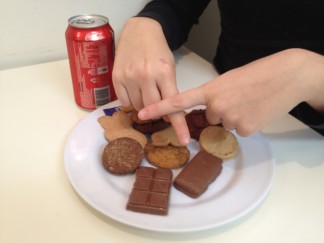Need an Appointment?
If you'd like to book an appointment with the dentist at Seymour Dental then contact us, or call us in Dulwich Hill, Sydney on (02) 9564 2397.
Hypoglycemia means low blood sugar and is caused by excess insulin (a hormone produced by the pancreas). Insulin causes the cells to absorb glucose from the blood. However, excessive insulin removes “free” glucose from the blood and therefore reduces the amount available for other important parts of the body, such as the brain. Typically a hypoglycemic person after ingesting sugar or caffeine may get a spike in blood sugar levels, then in about two hours a low. During this low the brain is not receiving enough energy (glucose in the blood), and this leads to incorrect function of the brain. This affects energy and mood levels and can lead to more serious long term problems such as anxiety, chronic fatigue and depression. A key symptom is disturbed sleep at about 2am, as the blood sugar levels drop so low that adrenaline is released to bring the blood sugar levels back to normal, causing the person to wake up.
When blood sugar levels fall too low, the brain is impaired. If the levels are too high, then arteries are damaged and long term this may lead to a heart attack and/or stroke. Intake of excessive sugar or refined carbohydrates (such as white bread, cakes, pasta, rice and so on) that is converted to sugars quickly, can overwhelm the body’s control of blood sugar levels with each meal. Lack of exercise reduces the ability to burn off these sugars. This condition can lead to insulin resistance, a precursor to diabetes.
Other causes of hypoglycemic symptoms but may not have the blood sugar level problems, include hypothyroidism. This causes abnormal zinc/copper levels that in turn cause enzyme dysfunction in the metabolism of glucose. Any anemia can mimic the symptoms of hypoglycemia. Stress also is a major factor in hypoglycemia.
Going to the dentist for some people can be stressful. This causes the body to release hormones to cope. Adrenaline is a stress hormone that causes a rapid rising of blood sugar levels, this triggers an insulin release that drops the blood sugar levels, and in turn causes hypoglycemia. The person then “falls into a heap”. Hypoglycemia can both cause the stress and be the result of stress. This may also cause sensitivity to adrenaline contained in some local anesthetics which can heighten its affects on the body such as heart palpations.
However, anxiety is a more powerful driver to causing hypoglycemia with the “fight or flight” response. The person is in a situation where they want to run away in their mind but decide not to, or cannot. This activates an adrenaline response which increases blood sugar levels. With reactive hypoglycemia, you may have an overactive insulin response to compensate. This response release much more adrenaline than that found in local anaesthetics that contain adrenaline.
There are local anaesthetics that contain no adrenaline, but the anaesthesia may not be as strong. It is always beneficial to eat small meals more frequently and perhaps monitor your blood sugar after dental treatment. If anxiety seems a likely cause, mild sedation with an oral sedative, or even intravenous sedation in cases of great anxiety. These options are best discussed with the dentist at Seymour Dental.
For further information visit Hypoglycemic Health Association.
Next week: Hypoglycemia and diet and the mouth
 479 Marrickville Road
479 Marrickville Road
